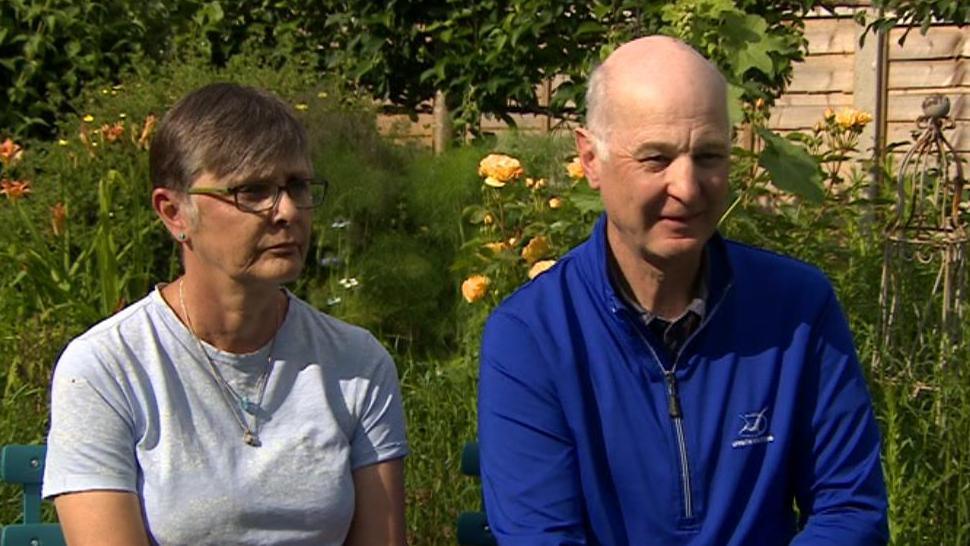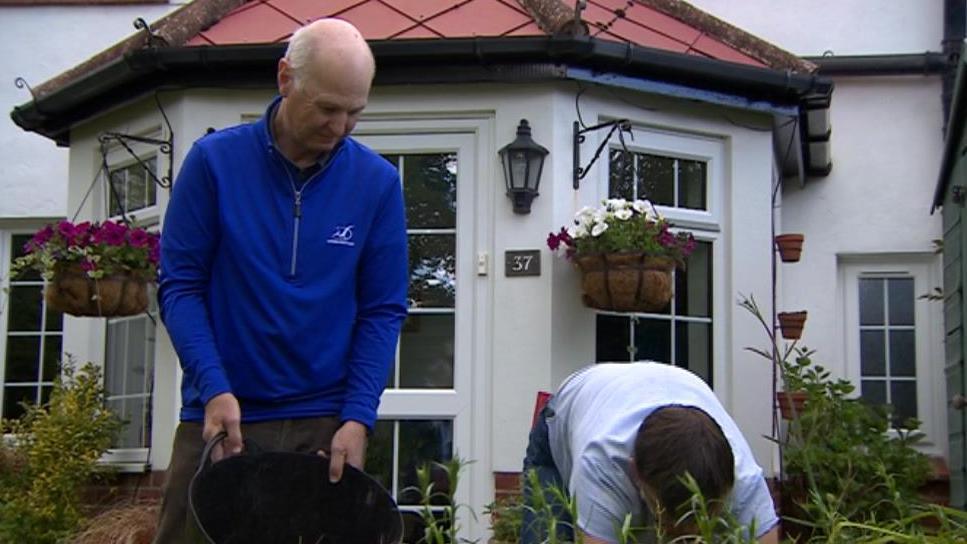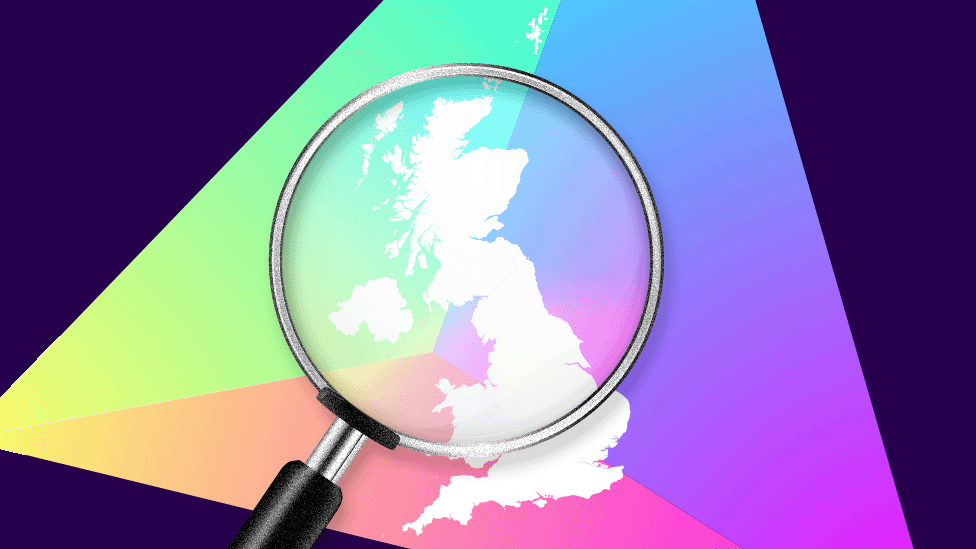'The NHS used to be the pride of the UK - now it's failing'

Carol and Graham Chandler said they wanted to hear more detail from all the parties about their plans to protect the NHS
- Published
Leaving the EU means we have "shot ourselves in the foot" when it comes to the NHS, one voter has told the BBC.
As part of the Your Voice Your Vote campaign, Graham Chandler from Wiltshire said he had opted to have his hernia surgery privately after discovering it drastically cut down the time he would have to wait for treatment.
He said leaving the European Union had reduced the number of staff in the NHS, although the government disputes this claim.
Mr Chandler said in that respect Brexit meant we had "shot ourselves in the foot because resources aren't readily available". To win his vote he said he wanted to see "something pretty dramatic" to deal with the problem.
Likewise, his wife Carol said she was keen to hear the detail of how prospective MPs would deal with NHS waiting lists adding: "I want them [politicians] to put resources in to enable them to get potentially more hospitals, we've got more doctors, more nurses and therefore treat people as expected.
"The NHS has always been the pride of this country, but it's failing."
Previously a Department of Health and Social Care spokesman said: "The most recent NHS staff survey shows the workforce feels happier than since the start of the pandemic, and there are now record numbers of doctors and nurses working in the health service."
The NHS waiting list for treatment in England has fluctuated, and it remains a popular topic of concern among voters, which all the main parties are keen to address. Scroll to the bottom to find out how the different parties aim to tackle this issue.
Both the government and Labour supported Brexit in the 2016 referendum as did Reform UK (formerly known as the Brexit Party) and UKIP. The SNP were against it as were the Lib Dems. The Greens and Plaid Cymru were also in favour of remain.
'Out of control'
Mr Chandler paid £2,600 to have private surgery in March, after discovering it would take until December 2024 to even see an NHS consultant.
His hernia was affecting his every day life, so he borrowed the money from family to pay for the surgery.
He placed the blame for high waiting lists on leaving the EU, telling the BBC: "It just seems that since we exited Europe... we've now got to such a state with the NHS that something pretty dramatic has got to be done to boost the numbers of resources available to get those waiting lists back down to sensible levels.
"They're out of control at the moment in my opinion."

Mr Chandler said private healthcare was "nice if you're in an advantageous position", adding: "But the population is getting much older now, and the NHS seems to be putting off these major operations as late as possible.
"Well, then you're pushing people into a period when they're in retirement... and the sort of money we've been talking about is unachievable for most pensioners."
Talking about the election and what he wants to hear from politicians, Mr Chandler said: "We've heard from the Liberal Democrats, they're going to sort out waiting lists but they haven't given us the detail - we want the detail of how they're going to do it.
"If it means an extra 10p in the pound, 2p in the pound, 5p in the pound on taxes, well maybe that's the way forward - but we have got to consider the population is ageing as well, so to load it on the taxpayer may not be the [best] solution in the end."

Graham Chandler said the hernia had been affecting his everyday life
How will parties tackle waiting lists?
The Conservatives say they will recruit 92,000 extra nurses and 28,000 extra doctors, invest in healthcare technology as well as build 40 more hospitals by 2030.
Labour says it wants to add 40,000 more GP appointments every week, funded by cracking down on tax-avoidance, as well as encouraging hospitals to collaborate with each other.
Meanwhile the Liberal Democrats pledge to give everyone the right to see a GP within seven days, or within 24 hours if they urgently need to, with 8,000 more GPs to deliver on it.
Reform says it will offer tax incentives for healthcare employees to improve staffing levels, as well as buy in additional appointment capacity from charities and the private sector.
The Green Party wants to increase funding of the NHS to £50bn by 2030 and says it will increase the salaries of front line workers.
Follow BBC Wiltshire on Facebook, external, X, external and Instagram, external. Send your story ideas to us on email or via WhatsApp on 0800 313 4630.
- Published3 June 2024

- Published3 July 2024

- Published6 June 2024
